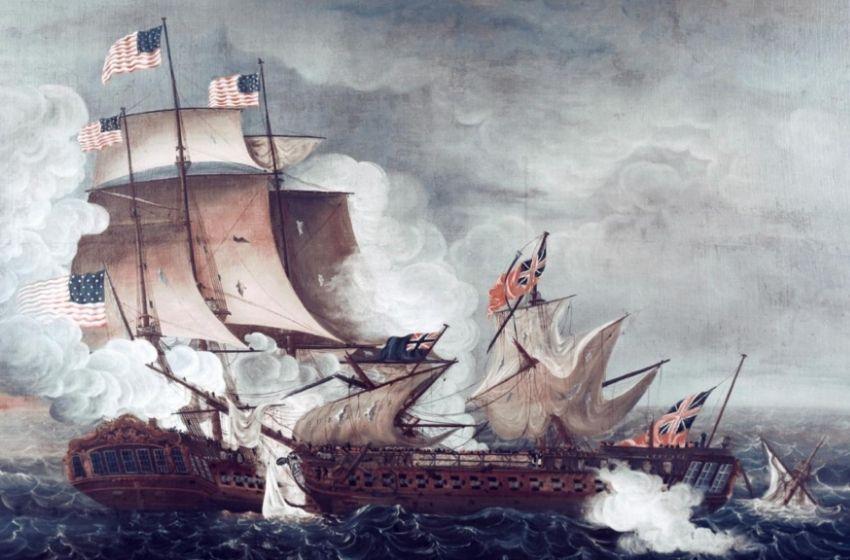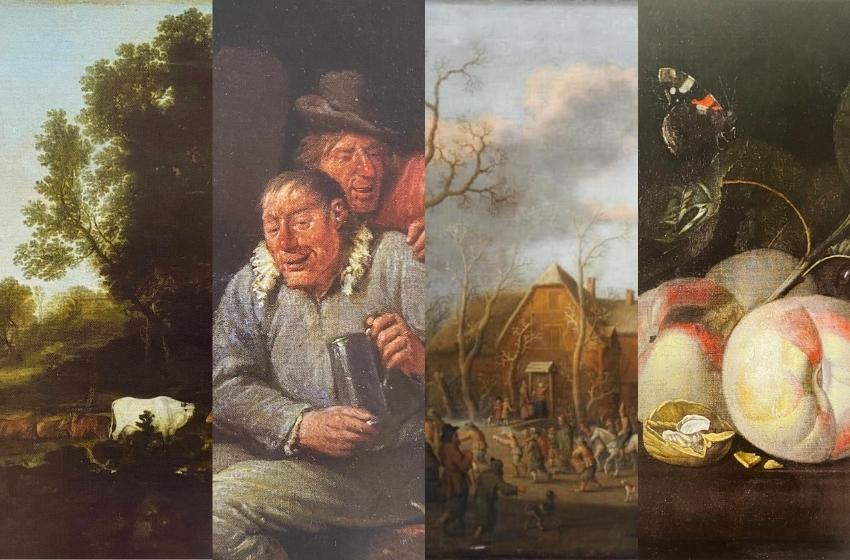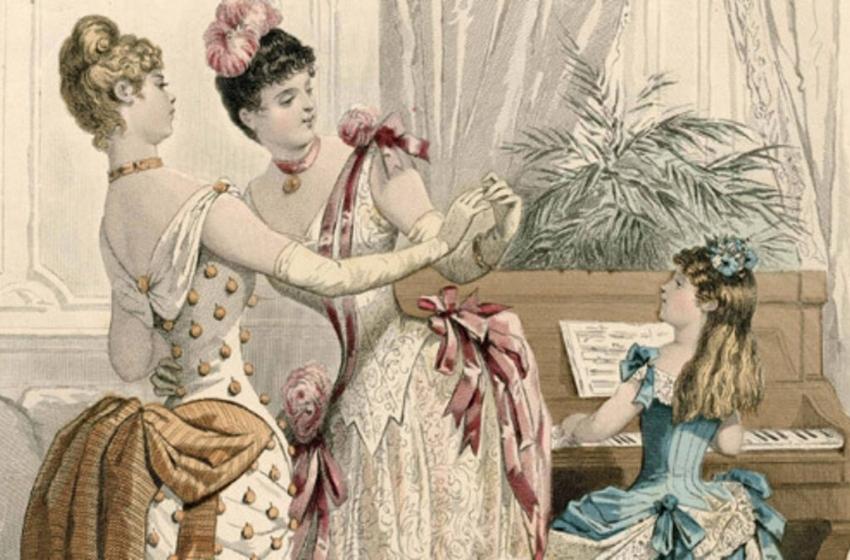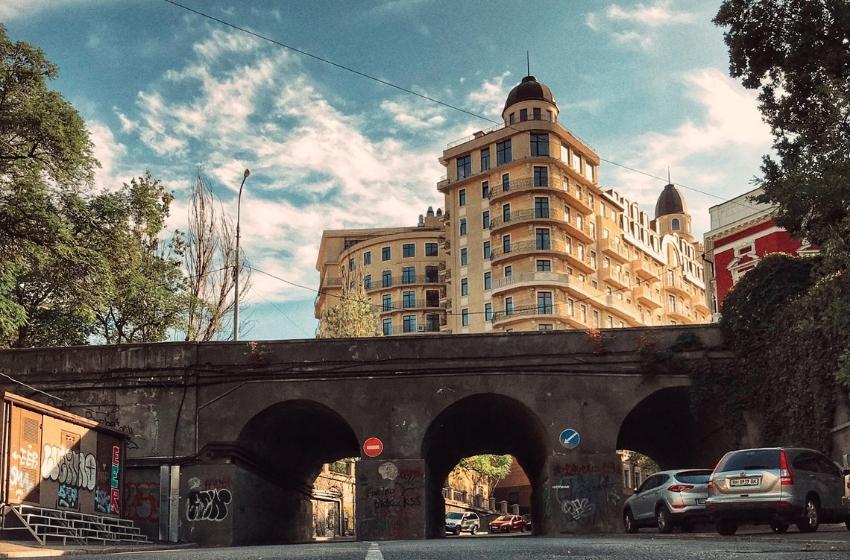An American-born adventurer, Navy officer for the Russian Empire, frightening privateer for the British sailors, reached the top ranks of Odessa city administration. The Russian poet Pushkin wrote poems about him, the niece of poet Zhukovsky's fell in love with him, Count Vorontsov entrusted him with the management of the port of Odessa.
Russian hero of the Napoleonic wars
George Sontag was born in Philadelphia in 1786, son of a German nobleman who had served in the army of the French revolution and eventually settled in America. As a twelve-year-old boy he was put on a war training ship and completed his training in 1808, when he became an officer in the US Navy. But one day the frigate "Wasp", where Sontag served as navigator, surrendered to the British. Miraculously, George escaped the fate of being hanged on a yard and decided to try his luck under a different flag.
In 1810, he visited Odessa. The Russian Empire had always willingly accepted foreign adventurers in its army; in addition, the governor of the Novorossiysk Territory at that time was the Duke of Richelieu, who advocated the establishment of trade relations with the United States.
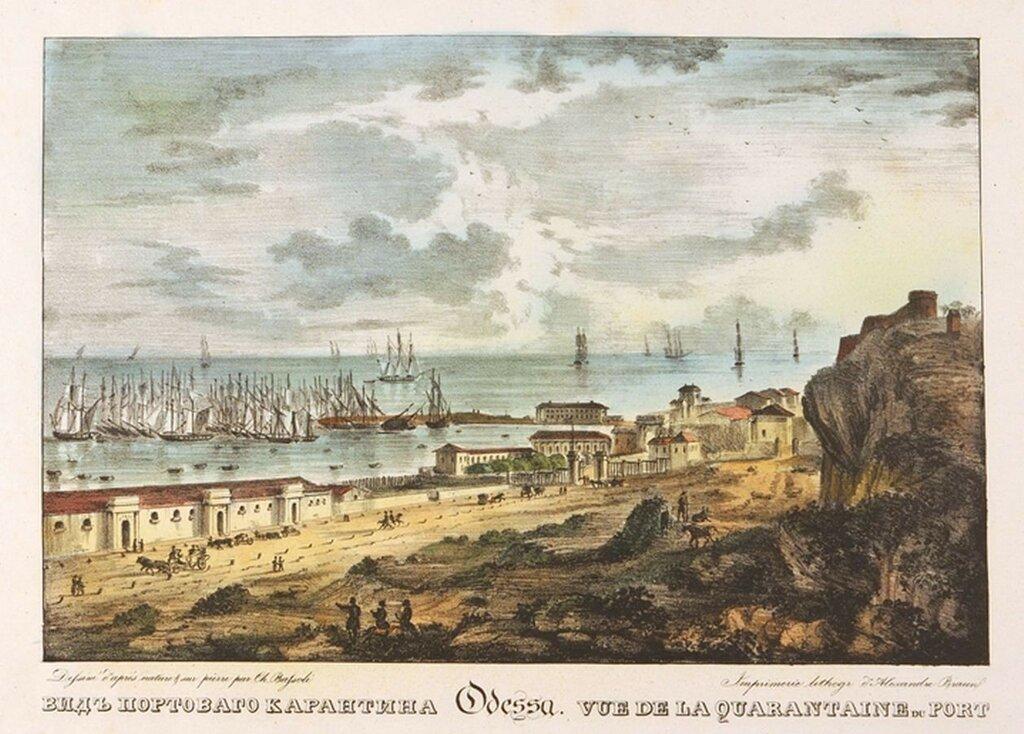
Therefore, in 1811, at the age of 25, having sworn allegiance to the Tsar, Sontag became a lieutenant of the Black Sea Fleet. Those were the times of the Napoleonic Wars and he had the opportunity to build a brilliant career. In 1812, Sontag left the fleet, transferred to a horse-jaeger regiment. His name was now Yegor Vasilyevich. The cavalry officer distinguished himself more than once in battles and was awarded many medals for his participation in the war of 1812. In addition, he received the Order of St. Anna and the Order of St. Vladimir. When in 1814 entered Paris as a winner, he already had the rank of colonel and many friends among the prominent military leaders.
During the campaign against Napoleon, he also met the future Governor-General of Novorossiysk, Count Mikhail Semenovich Vorontsov. This acquaintance turned the life of the dashing warrior into a succesful public official. Sontag will spend most of his life under the wing of the governor of Bessarabia, and Vorontsov will tirelessly support his protégé.
Captain Sontag's "Odyssey"
At the end of the military campaign, Yegor Vasilyevich took a two-year leave to visit his native Philadelphia. Due to bureaucratic delays and intrigues, he couldn’t straighten out the necessary papers. But such a gallant warrior like Sontag could not be stopped by paper barriers.
He found out that an American ship was in the port of the French city of Nantes. He went there and, without bargaining, bought the vessel with the crew. At that time America was at war with England and the ship had a privateering permit - that is, a completely legal right to rob enemy ships. And George Sontag did just that.
He was a privateer and sank English ships in the Atlantic.
Oleg Gubar, Ukrainian historian
But when Sontag was already close to reach his native Philadelphia shore, unexpectedly, the team started a riot. Apparently, the pirates had committed so many crimes that they were afraid to end up in the hands of the American authorities. The captain had to fulfil their demands and sailed to Latin America. He moored in Rio de Janeiro, where there was a Russian consulate. There, the famous hero was received with open arms and the consul helped him to sell the damned ship. But the American did not succeed to get to his native Philadelphia. Eventually, he had to return to Odessa, through Europe.
Back in Europe, he visited his relatives in Stuttgart and Frankfurt am Main, travelled to Saint Petersburg with the Crown Prince Wilhelm of Württemberg and, in 1816, re-entered the Russian service.
Great public career in Odessa
In 1816, Yegor Vasilyevich was again in the Black Sea Fleet and became the captain of the ship "Utekha". There is a legend that when the disgraced Alexander Pushkin was exiled to Odessa, in 1820, Sontag rolled the poet on his ship and illegally drove him to Nikolaev.
In Odessa, he met the niece of the poet Vasily Zhukovsky, Anna Yushkova, and married her. Pushkin allegedly dedicated one of the poems to Yegor Vasilyevich - "I envy you, brave pet", and painted the fields of the notebook with portraits of the ex-American and his wife.
In 1828, with the rank of lieutenant commander, he served as the commander and then inspector of the Odessa quarantine port, an official charge at special assignment under the governor. In 1831, for almost half a year, he became even mayor of Odessa.
Unlike those who made their careers with the help of money and connections, Sontag continued to prove himself an experienced and courageous sailor.
When the ship “Success”, which entered the harbour, ran aground due to a storm and the council of experts did not know what to do, Sontag personally stood at the helm and, putting the ship on its side, pulled it aground and brought it to the pier.
Oleg Gubar, Ukrainian historian
In 1830 and 1837, Georg Sontag fought to contrast plague epidemics and was awarded the gold medal "For the end of the plague in Odessa." Vorontsov, who greatly appreciated Sontag, procured for him the rank of actual state councilor, which corresponded to the rank of general.
Despite the fact that for some time Sontag and his wife lived in Nikolaev, it was Odessa that became his main and last harbour. Under the patronage of the governor Vorontsov, who turned Odessa into the main trading city of Southern Russia, he lived at ease.
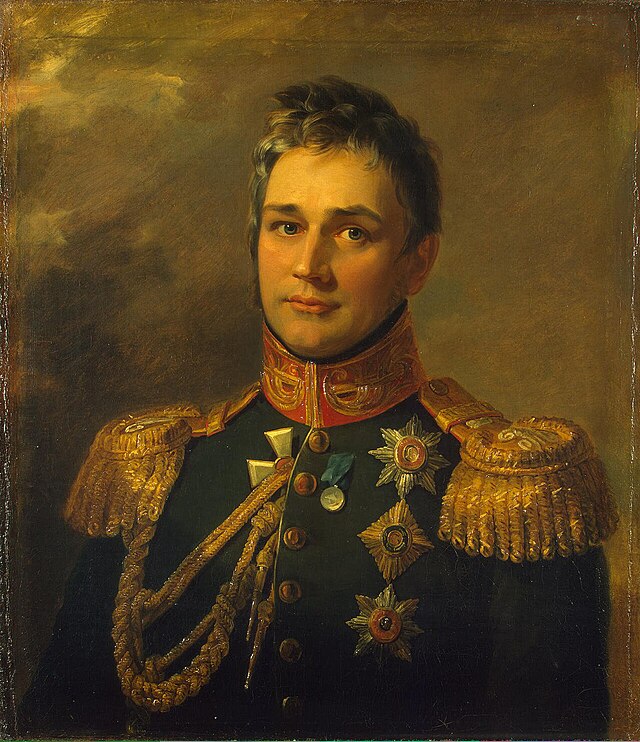
Patron of the arts
In South Palmyra, Sontag lived next door to Vorontsov's palace, in the city center overlooking the port. He attended secular circles and patronised art. In addition, his neighbours were Count Pototsky, princes Lopukhin and Naryshkin, merchants Sarato and Verani. He easily made friends among the nobility and foreign officials who were in Odessa.
He really can be called a gentleman of luck.
Oleg Gubar, Ukrainian historian
Due to his light hand of an American, new exhibitions appeared in the local archaeological museum. Once, when the ship that had entered the Odessa port threw off the ballast, George noticed manuscripts with ancient Greek inscriptions in the heap of stones. These findings are kept in the museum to this day.
In addition, he collected the only library of American literature in the city. In many ways, he became interested in literature thanks to his marriage. Anna Yushkova was a writer herself. Sontag supported his wife's hobby in every possible way, helped edit texts and even sometimes gave out stories for new works. Vasily Zhukovsky also liked her niece's husband.
Seeing him, I understood in a minute how you could have decided to marry him so soon. I myself would have done the same in your place. I do not know a person whom you can fall in love so soon as this dear Sontag.
Vasily Zhukovsky, letter to Anna
The marriage brought Sontag new acquaintances, mainly among the nobility and literary bohemians. Sontags were friendly with Tumansky (Homer's translator), Gnedich, Raich, Vigel, the writer Sturdza, and also the compiler of the famous dictionary Dal.
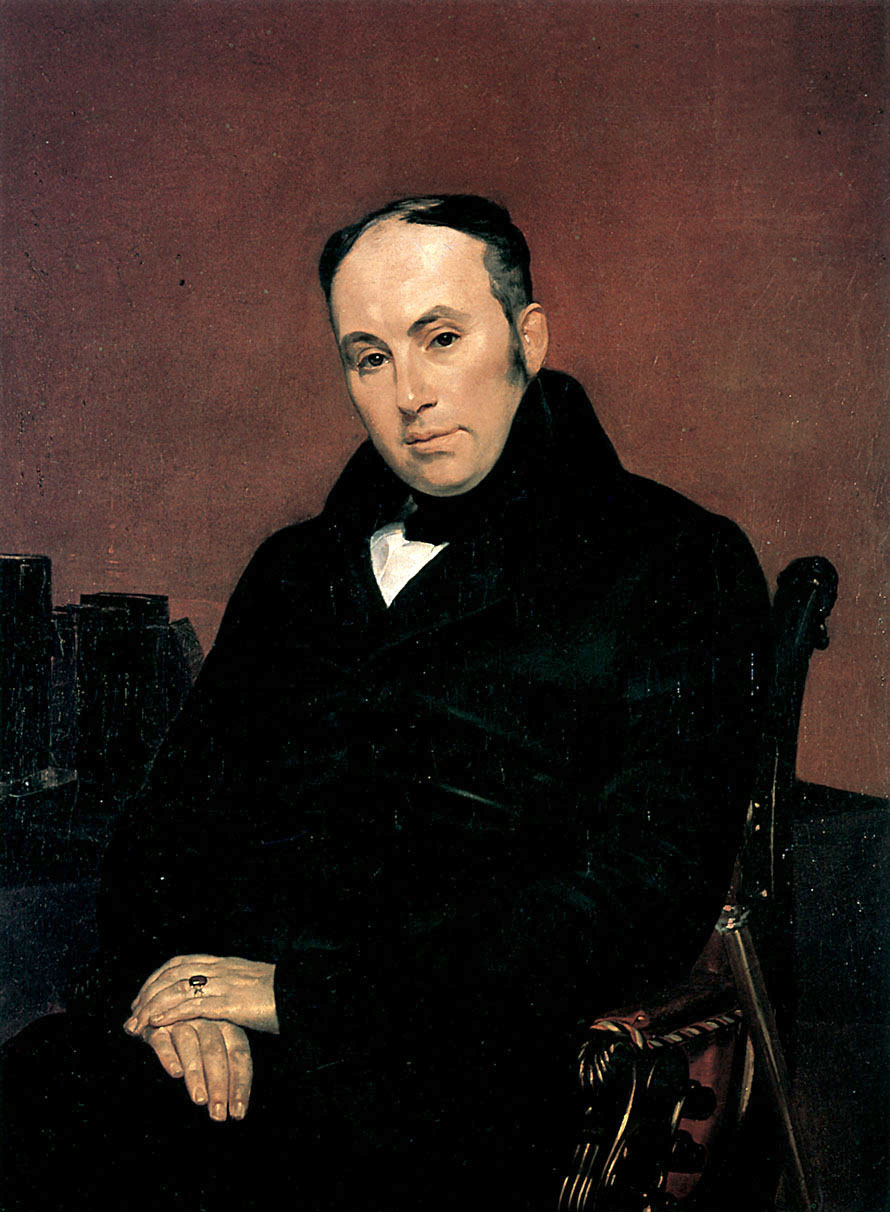
Portrait of Vasily Zhukovsky
The daughter of the Sontags, Maria, married the Austrian consul in Odessa Ludwig von Gutmannsthal-Benvenuti.
It turns out that [Odessa nationality] is not only a tasty, decorative metaphor, but aliving fact, and the fate of an American who created a multinational family in Odessa clearly illustrates it.
Oleg Gubar, Ukrainian historian
In 1839, George Sontag fell ill and died two years later, in March 1841. He was buried at the First Christian Cemetery, but his grave was destroyed in the 1930s by Soviet authorities.
After the death of the American's wife and his daughter, Vasily Zhukovsky took care of the welfare. His grandson, Nikolaj von Gutmannsthal-Benvenuti, published his biography in Laibach, in 1903.
Private farm and slave field
The Sontag family had a private farm outside the city, which Yegor Vasilyevich named Utekha in honour of his beloved ship. On an area of ​​approximately six hundred acres his Serfs worked, raising animals and growing wheat. This fact greatly surprised the American diplomat John Stephens, who travelled to Russia in the mid-1830s.
One thing particularly struck me, although as an American I probably shouldn't have been so sensitive. A large number of people worked in the field, and they were all slaves. Such is the power of education and habit that I have seen hundreds of black slaves without any feeling; however, I was struck roughly by the sight of white slaves in front of an American whose father was a soldier of the revolution and fought for the great principle of "all men are born free and equal".
John Stephens, travel notes









